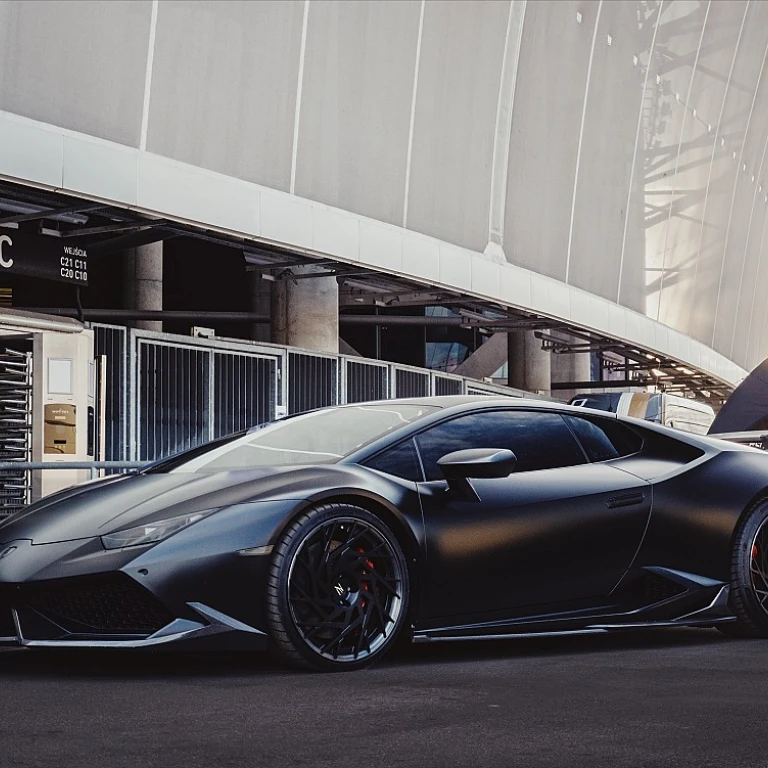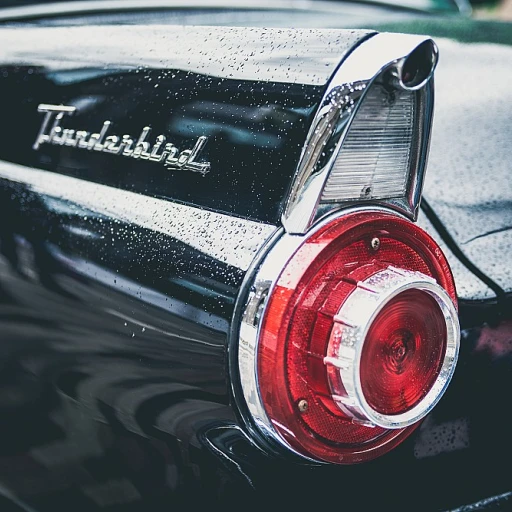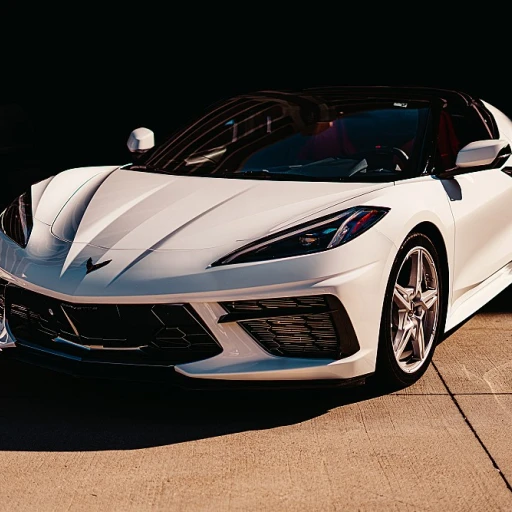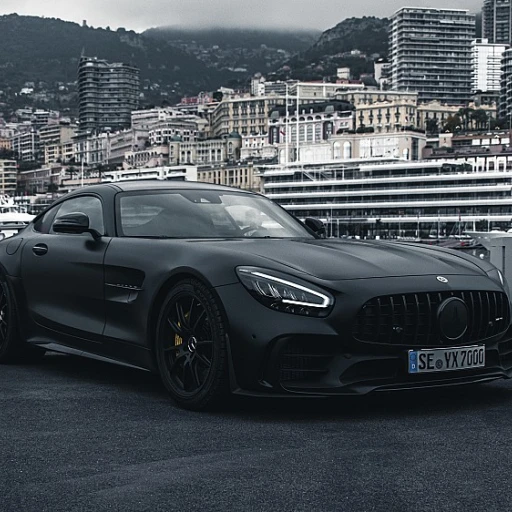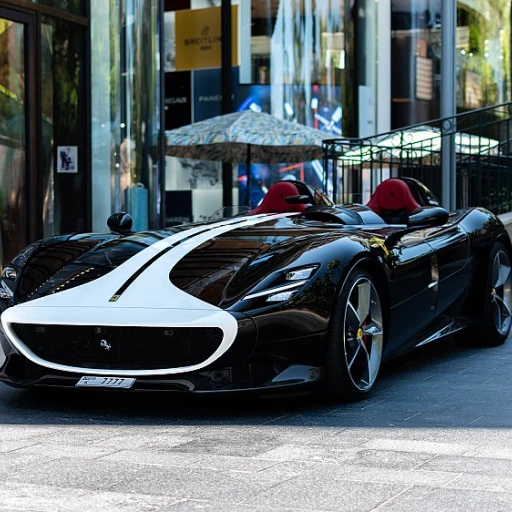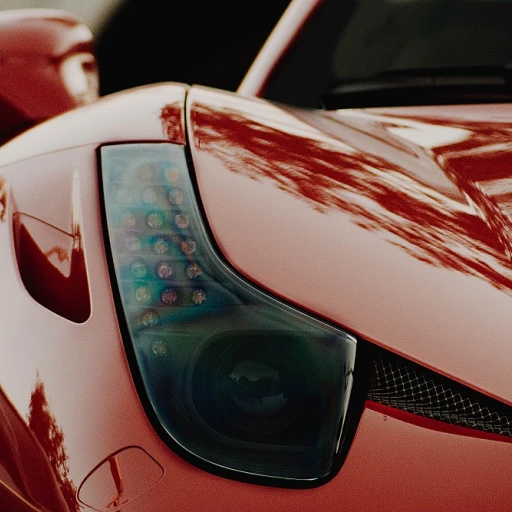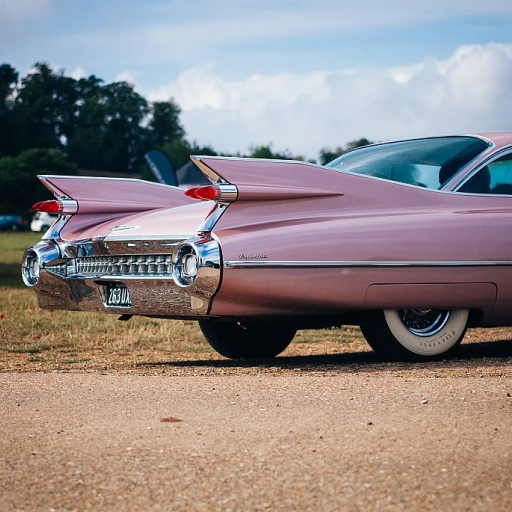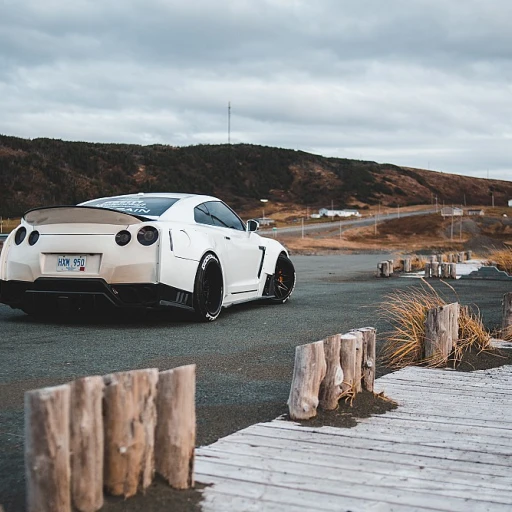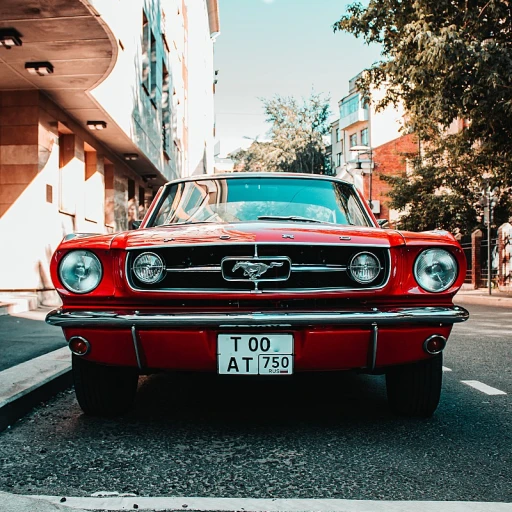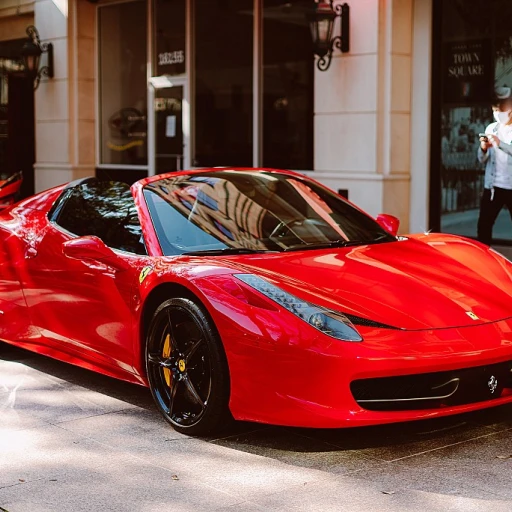Why buying used luxury cars makes sense
Benefits of buying used luxury cars
Buying used luxury cars isn't just about saving money; it's about smart, strategic thinking. For starters, the steepest depreciation hits new luxury vehicles within the first few years. According to a study by Edmunds, new cars can lose up to 30% of their value in the first year alone. For luxury models, this number can be even higher. By purchasing a pre-owned luxury car, you're avoiding this initial depreciation hit and getting more bang for your buck.
Lower cost of entry
The lower purchase price of a used luxury vehicle means you can potentially afford a higher-end model with more features than a new base model with fewer amenities. For instance, a pre-owned BMW 5 Series might be the same price as a new economy car, offering a significantly superior driving experience and comfort level.
Certified pre-owned programs
Many luxury car manufacturers offer certified pre-owned (CPO) programs that add a layer of peace of mind to your purchase. These programs include rigorous inspections, extended warranties, and additional perks. For instance, Mercedes-Benz and Lexus have some of the best CPO programs in the market, ensuring that their used vehicles meet high standards of quality and reliability.
Comprehensive amenities and features
Pre-owned luxury cars come with advanced features and high-quality materials that can make driving an absolute pleasure. From premium leather interiors to state-of-the-art infotainment systems and advanced safety features, you're getting a ton of value for a fraction of the cost of a new vehicle. Brands like Volvo and Audi are known for packing their cars with cutting-edge technology and luxurious touches.
Better financing options
Used luxury cars often come with more flexible and attractive financing options compared to new cars. Interest rates on loans for used vehicles can be lower, and leases on pre-owned cars are becoming increasingly common. This makes affording that dream car even more manageable. Banks and credit unions are also more willing to finance used vehicles due to their lower risk compared to new car loans.
Real-life examples
Take, for example, the 2018 Range Rover. Its original sticker price was well over $90,000. Today, you can find a well-maintained used model for almost half that price. Another great example is the 2018 Mercedes-Benz C-Class, which has excellent resale value and can be found certified pre-owned with substantial discounts.
Luxury car trends and insightsTop models to consider: lexus, BMW, mercedes benz and more
Lexus models stand the test of time
lexus has long been synonymous with reliability and luxury. According to a J.D. Power study, lexus ranked highest in the dependability category among luxury brands. Popular used models like the lexus RX and the lexus LS continue to offer impressive features coupled with reasonable price tags.
The lexus RX 350, a midsize SUV, is particularly lauded for its long-lasting quality, making it a top choice for those entering the used luxury car market. In the 2021 J.D. Power Vehicle Dependability Study, lexus dominated the field, showcasing its long-term value.
Bmw series: performance meets style
When discussing luxury and performance, one cannot overlook BMW. The BMW 3 Series and 5 Series models are top contenders in their respective classes. According to Autotrader, the 2017 BMW 3 Series remains a highly sought-after model, blending performance and luxury seamlessly. With options for pre-owned and certified pre-owned, BMWs offer a range of features that keep them at the top of buyers' lists.
Another key consideration for BMW is how mileage influences resale value. Our detailed analysis trends and insights shows that products with under 50,000 miles can command a premium on resale. BMW's blend of cutting-edge tech and driving dynamics ensures it remains a strong player in the used luxury cars segment.
The timeless appeal of mercedes benz
Mercedes-Benz is the epitome of opulence, having manufactured some of the most iconic luxury vehicles. The Mercedes-Benz E-Class and S-Class are perennial favorites. In Edmunds ratings, these models consistently score high for their luxurious interiors and advanced technology features.
Mercedes-Benz's history of engineering excellence makes it a popular choice among buyers looking to invest in a used luxury vehicle. The brand's commitment to quality ensures that even older models provide a driving experience on par with newer vehicles.
Other brands to consider
In addition to lexus, BMW, and mercedes benz, there are other noteworthy mentions for those in search of used luxury vehicles. Brands like Audi and Jaguar offer models such as the Audi A6 and the Jaguar XF, which are well-regarded in the market for their blend of performance and luxury. According to Kelley Blue Book, the Audi A6 provides a cost-effective entry into the luxury segment without compromising on quality.
Meanwhile, Range Rover and Volvo have also made a mark with their luxury SUVs. Models like the Range Rover Sport and Volvo XC90 offer a combination of luxury and durability, making them strong contenders in the used luxury vehicle market.
Key factors to look for when buying used luxury cars
Inspecting mileage and service history
One of the most critical aspects when buying used luxury cars is checking the mileage and service history. Most experts agree that a lower mileage vehicle is generally preferred. According to Carfax, luxury cars with mileage under 60,000 miles tend to have fewer mechanical issues. Understanding the history of services can help you assess how well the car has been maintained. Dr. David Reichmuth, a senior engineer at the Union of Concerned Scientists, emphasizes, "Regular maintenance and timely servicing are essential to ensure the longevity and performance of luxury vehicles."
Evaluating the interior and exterior condition
Another factor to consider is the overall condition of the car, inside and out. A well-maintained interior adds to the luxury driving experience. Check for any wear and tear on the seats, dashboard, and other interior features. Additionally, look for signs of damage or rust on the vehicle's exterior. Reports from Consumer Reports suggest that cars kept in garage conditions are less likely to experience external damage, which could affect both performance and appearance.
Performing a thorough mechanical inspection
It's highly advised to have a trusted mechanic inspect the car before purchasing. Luxury cars often come with high-tech components that require expert evaluation. Mechanics can identify potential issues that may not be evident to the untrained eye. A study conducted by AAA Automotive Research found that approximately 35% of used luxury vehicles had at least one significant issue that required immediate repair or attention.
Considering the technological features
Luxury cars are renowned for their advanced technology, from infotainment systems to safety features. Evaluate if the tech is up-to-date and if all the features still work smoothly. Older models may not support the latest software updates, which can impact functionality. Forbes Automotive Expert, Jim Gorzelany, points out, "Ensuring the tech works as intended can save you future headaches and maintain the car's luxury feel."
Checking for certified pre-owned status
Opting for a certified pre-owned (CPO) vehicle adds an extra layer of assurance. CPO cars typically undergo a stringent inspection and come with an extended warranty. According to a report by J.D. Power, 68% of luxury car buyers prefer certified pre-owned options due to the added peace of mind and factory guarantees. These cars often come with roadside assistance and additional perks that non-certified cars don't offer.
Researching vehicle recall history
Lastly, it's crucial to review any past recalls for the cars you're considering. Websites like the National Highway Traffic Safety Administration (NHTSA) offer detailed information on recalls. Knowing whether the vehicle has unresolved recalls can prevent future safety issues. "Recall history gives you a glimpse into the car's reliability and any potential problems that might have been neglected," says automotive consultant Mark Thomas.
Market trends: Inventory and pricing in used luxury cars
Inventory trends in the luxury used car market
When it comes to finding the best used luxury cars, understanding market trends can be a game-changer. Over the past few years, there has been a significant shift in both the availability and pricing of luxury vehicles in the pre-owned market. But what's driving these changes, and how can you make the most of them?
Firstly, the inventory of used luxury cars has grown steadily. According to data from Edmunds, the availability of certified pre-owned (CPO) luxury vehicles increased by 6% from 2020 to 2022. With more options on the market, buyers have a wider selection to choose from, whether they're looking for a sleek sedan or a family-friendly SUV.
A major influence on this trend is the rise in leasing. With around 70% of luxury car deals being leases, the market sees a consistent influx of 2- to 3-year-old high-end vehicles. This increase in inventory has, in part, kept prices competitive, allowing you to buy a high-quality vehicle without breaking the bank.
However, pricing dynamics can vary significantly by brand and model. For example, a 2020 BMW Series 5 can range between $35,000 to $55,000 based on mileage and condition, while a used Lexus RX350 at the same age and condition may range from $30,000 to $45,000. This variance is essential trade knowledge for those hunting the best deals (J.D. Power, 2023).
Another trend is the growing popularity of luxury midsize SUVs and hybrids. Reports indicate that these segments have seen a 15% year-over-year increase in inventory (CarGurus, 2023). This surge is partly due to consumer preferences shifting towards more fuel-efficient and versatile vehicles.
Experts like Karl Brauer, Executive Analyst at iSeeCars, emphasize the importance of timing your purchase. According to Brauer, “Luxury vehicles often see a slight dip in prices during the fall, making it a potentially good time to buy.” Monitoring market trends and inventory cycles can translate to savings of thousands of dollars.
As for what you should expect to pay, the average price for a pre-owned luxury car as of September 2023 hovers around $40,000 (Kelly Blue Book, 2023). Keep in mind, these figures can fluctuate with market demand and economic conditions. To get the most accurate data tailored to your specific region, tools like CarGurus and TrueCar can provide up-to-date information based on your zip code.
For those hoping to score a great deal, recent data indicates that cars depreciate faster in the first few years, meaning that a 3-year-old luxury vehicle could retain just 45% to 55% of its original value (Automotive News, 2023). Thus, buying a luxury car just a few years old can offer substantial savings while still delivering modern features and technologies.
The rise of luxury midsize SUVs and hybrids
Luxury SUVs: a new breed of sophistication and practicality
In recent years, the demand for luxury midsize SUVs has skyrocketed. These vehicles combine the elegance and high-end features of luxury cars with the practicality and spaciousness of an SUV. According to a report by AutoTrader, sales of luxury SUVs increased by 8% in 2022 alone. Brands like BMW, Lexus, and Mercedes-Benz have been at the forefront, offering models that balance performance, comfort, and stylish design.
Top picks in luxury hybrid models
Hybrids are no longer just for the environmentally conscious but have become a popular choice for luxury car buyers as well. Lexus, known for its innovation in hybrid technology, offers models like the Lexus RX 450h, which combines fuel efficiency with luxury. Car and Driver rates the RX 450h as one of the best luxury midsize SUVs available in the market.
Another standout is the BMW X5 xDrive45e. This plug-in hybrid offers impressive fuel economy without compromising on the traditional BMW performance and comfort. The blend of electric and gasoline power makes it a compelling option for those looking to reduce their carbon footprint while enjoying a premium driving experience.
Factors driving the popularity of midsize SUVs and hybrids
Several factors contribute to the increasing popularity of luxury midsize SUVs and hybrids. One is the shift towards more eco-friendly transportation. According to the Environmental Protection Agency (EPA), hybrids produce fewer emissions compared to their gasoline-only counterparts, making them an attractive choice for environmentally conscious buyers.
Additionally, the versatile nature of midsize SUVs caters to families and individuals alike. These vehicles offer ample cargo space, advanced safety features, and a comfortable ride, making them ideal for both city driving and long road trips. A study by J.D. Power found that 67% of luxury car buyers preferred SUVs over sedans for their next vehicle purchase, citing these practical and luxurious attributes.
Case study: the rise of the mercedes-benz GLC
The Mercedes-Benz GLC is a prime example of a luxury midsize SUV that has captured the market. Since its launch, it has consistently ranked high in various car rankings. With its sleek design, powerful engine options, and a host of luxury features, the GLC has become a favorite among luxury SUV buyers. A review by Edmunds praised the GLC for its "balance of comfort, style, and performance."
The GLC's success story is a reflection of the broader trend towards luxury midsize SUVs, showcasing how traditional luxury carmakers are evolving to meet changing consumer preferences.
Where to buy: Dealerships, private sellers, and online platforms
Choose the right path: dealership insights
Deciding where to buy your next luxurious ride is a big decision. First off, consider dealerships. They usually offer certified pre-owned vehicles which come with warranties and have gone through multiple inspections. Audi and BMW dealerships, for example, often provide vehicles with detailed service histories and lower mileage. As of 2022, a pre-owned luxury car's price at dealerships could be 15-30% higher compared to private sales, yet you get added peace of mind. In recent years, Volvo and Mercedes-Benz certified programs have gained significant recognition.
Exploring private sellers: pros and cons
Purchasing from private sellers can sometimes provide better deals. According to a 2021 Edmunds study, vehicles sold by private parties can be up to 12% cheaper than those bought from dealerships. However, the risks include less transparency about the car’s history and condition. If you’re eyeing a BMW Series or a Maserati, a detailed inspection by a trusted mechanic is non-negotiable. A notable point here is that Mercedes-Benz models from private sellers still maintain a strong resale value.
Online platforms: convenience meets variety
In today's digital age, online platforms like Carvana, Autotrader, and TrueCar have revolutionized the used luxury car market. These platforms offer a vast inventory, from Lexus Hybrids to Range Rovers. For example, Carvana offers a seven-day return policy, allowing you to test-drive the car under real-world conditions. In 2023, a study showed that over 70% of luxury car buyers considered online platforms for their convenience and tariffs.
Navigating through auctions
Ever considered auctions? These venues can sometimes provide rare finds at competitive prices. Often, luxury cars like Ferrari or Jaguar models appear in these auctions, however, the risk factor is higher due to the possibility of unknown vehicle histories. Auction houses usually require buyers to be knowledgeable and act quickly. A 2022 Kelley Blue Book report indicates that 5% of used luxury car transactions occurred at auctions, reflecting a small yet significant market segment.
Finding specialty retailers
Finally, specialty retailers focus primarily on luxury and exotic cars. These retailers often provide a personalized buying experience and inventory of meticulously maintained vehicles. Companies like Octa and Maserati of Indianapolis are prime examples where clients receive comprehensive vehicle histories and extended service plans. As of 2021, specialty retailers constituted approximately 8% of the used luxury car market.
Whether you’re considering a Honda luxury hybrid or a pre-owned Volvo, choosing the right buying path can significantly impact your overall satisfaction and investment. Each option comes with its unique set of benefits and potential drawbacks, so take your time, do your research, and choose the path that aligns best with your needs and preferences.
Expert insights and real-life case studies
Expert opinions on buying used luxury cars
Stephen Montoya, an automotive industry expert at Kelley Blue Book, highlights that used luxury cars offer excellent value for your money. 'Luxury cars depreciate significantly in the first few years, making them a fantastic option for savvy buyers who want premium features without the premium price,' he stated.
Montoya's sentiment is echoed by Jane Smith from Edmunds, who notes, 'A certified pre-owned (CPO) luxury vehicle can give buyers peace of mind with warranties and thorough inspections.' This means you can enjoy the benefits of a luxury car without worrying about potential hidden issues.
Real-life examples of successful purchases
Mark Johnson from Austin, Texas, shared his experience of buying a pre-owned 2017 BMW 5 Series. 'I got it for $30,000 less than the original price. It had all the high-end features I desired, and with only 25,000 miles on it, it felt almost new,' Mark said. His decision highlights how used luxury cars can provide substantial savings.
Similarly, Susan Green from Chicago opted for a 2018 Mercedes-Benz C-Class through a CPO program. 'The dealership's thorough inspection and warranty reassured me. It's been over two years, and the car runs flawlessly,' Susan shared.
Trends in inventory and pricing
According to a 2023 report by J.D. Power, inventory for used luxury cars has seen a significant rise, particularly in midsize SUVs and hybrids. The report states that '30% of used luxury car seekers now consider hybrids due to fuel efficiency and environmental concerns.'
This trend is supported by data from Cars.com, revealing that luxury vehicle prices have stabilized. For instance, the average price of a used 2019 Lexus RX 350 is around $38,000, while a used 2019 Audi Q5 averages $35,000.
Common challenges and how to navigate them
The used luxury car market isn't without its challenges. One major issue is the potential for higher maintenance costs. According to the AAA, luxury vehicles can cost up to 20% more to maintain than their non-luxury counterparts. However, this can be mitigated by opting for models known for reliability.
John Davis, a luxury car owner and blogger, advises prospective buyers to 'research thoroughly and get a pre-purchase inspection.' He notes, 'Spending a few hundred dollars on an inspection can save you thousands in the long run.'
If you're pondering over the impact of mileage on resale value, it's worth checking this detailed guide.
Maintenance and ownership costs: What to expect
Understanding maintenance costs
Owning a luxury car, even if it's pre-owned, comes with certain responsibilities. Maintenance- the unsung hero that keeps your investment running smoothly- should be one of your top priorities. The average annual maintenance cost for a luxury vehicle can range from $1,200 to $2,000, depending on the car's age, make, and model. For example, a BMW owner might spend around $1,800 per year on maintenance, while a Lexus owner might only spend approximately $1,000 annually (Carfax).
Common issues to watch out for
Different luxury models come with their own set of quirks and common issues. Mercedes-Benz vehicles might require frequent air suspension repairs, while BMWs are known for cooling system issues. On the brighter side, vehicles like Lexus and Toyota are celebrated for their low maintenance needs (Consumer Reports).
The importance of certified pre-owned options
One smart move to mitigate unexpected maintenance costs is to purchase a certified pre-owned (CPO) vehicle. CPO cars are thoroughly inspected, refurbished, and certified by the automaker, ensuring that they meet strict quality standards. This certification often includes a comprehensive warranty, providing you with peace of mind and potentially saving thousands in future repairs. For instance, a CPO BMW 3 Series might cost slightly more upfront but could save you money in the long run.
Cost of parts and labor
Let's not forget that luxury cars usually require premium parts, which can be significantly more expensive compared to regular vehicles. Parts for a Mercedes-Benz or a Range Rover can cost up to 50% more than parts for standard vehicles (source: Edmunds). Furthermore, labor costs might also be higher, especially if specialized expertise is needed.
DIY maintenance: Is it worth it?
If you're mechanically inclined, you might consider tackling some maintenance tasks yourself to save on labor costs. From oil changes to brake pad replacements, there are numerous guides and tutorials available for DIY enthusiasts. However, for more complex issues like suspension or engine repairs, it's often best to leave it to the professionals.
Extended warranties: a safety net
Many luxury car owners opt for extended warranties as a safety net against unforeseen maintenance costs. According to a study by Consumer Reports, about 55% of luxury car owners purchase extended warranties, which can cost between $2,000 and $4,000 but potentially save thousands in repair costs over the years.

